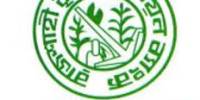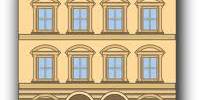Introduction:
Islami Bank Bangladesh Limited (IBBL) the first interest free Islamic Shariah based bank in Bangladesh incorporated on 13 March 1983 as a public limited company under the Companies Act 1913. The bank obtained license from bangladesh bank on 28 March 1983 and started banking operations on 30 March 1983 through its main branch at Dhaka, which was formally inaugurated later, on 12 August 1983. The bank is a joint-venture enterprise of 22 private sponsors of Bangladesh, the government of Bangladesh, Islamic Development Bank, and 13 banks and financial institutions of the oil-rich Middle Eastern Muslim Countries.
IBBL started its banking operations with an authorised and paid up capital of Tk 500 million and Tk 67.50 million respectively. The capital is divided into ordinary shares of Tk 1,000 each. The paid up capital of the bank was enhanced to Tk 640 million in 2001. Of the 79,500 ordinary shares of the bank in 1985, foreign sponsors, including the Islamic Development Bank (IDB), owned 56,000, while 23,500 shares were owned by local sponsors and the general public. investment corporation of bangladesh was allocated 20% of bank’s issued capital, but the corporation subscribed shares of Tk 0.5 million only. The bank is listed with both Dhaka and Chittagong Stock Exchanges.
IBBL conducts businesses on the basis of Islamic Shahriah and the modes of transaction include Mudaraba, Musharaka, Hire Purchase ( under Shirkatul Melk), Bai-Murabaha, Bai-Muajjal, and Bai-Salam. The bank also provides all other kinds of commercial banking services to the customers observing the provisions of the Bank Company Act 1991, Bangladesh Bank’s directives and the principles of Islamic Shariah.
A 23-member board of directors oversees the aggregate business affairs of the bank. The executive president is its chief executive officer. In December 2001, the bank had 121branches and a total of 3,060 employees including 145 executives. There is a 10-member Shariah Council for the bank to ensure the compliance of Islamic rules in all spheres of its banking and financial activities. IBBL has a training as well as a research institute in Dhaka.
The volume of deposits of the bank in December 2000 was Tk 31,536.5 million. Deposit-mix included Mudaraba savings deposits, Mudaraba special notice deposits, Mudaraba term deposits ranging from 6 months to 36 months, Mudaraba Hajj savings deposits, Mudaraba special savings (pension) deposits and Mudaraba savings bond of 5 and 8 years.
The investments (lending) of the bank are partnerships, profit sharing, capital in affiliated projects, real estates, housing, transport, agriculture, export-imports, trade and commerce and other economic activities. Such investments in December 2000 were Tk 29,529 million. In addition, the bank has investments in other income generating assets like company shares and such investments totaled Tk 34.15 million. The bank lends money to its directors and executives (insider lending) under Shariah principles. As of December 2000, investments (lending) of the bank in industrial sector covered 174 projects in garments sector, 91in textiles, and 174 in other industries. Total investments of the bank in the industrial sector stood at Tk 9,849.80 million on 31 December 2000. With the increases in the bank’s investments (lending), the amount of non-performing classified investments had also increased over time. Total classified loans amounted to Tk 2,844.3 million (9.63% of total) in December 2000. Total assets of the bank excluding off-balance-sheet items were valued at Tk 39,366.09 million on 31 December 2000, when the off-balance-sheet items accounted for Tk 8,914.24 million. The volume of foreign exchange business handled by the bank in 2000 was Tk 49,860.00 million, which comprised import financing (Tk 25,327.00 million), export servicing (Tk 16,889.00 million) and remittances (Tk 7,644.00million). The bank has correspondent relationships with approximately 750 foreign banks and financial institutions.
The bank earned net profits of Tk 330.24 million in 2000. During the same year, it received Tk 2,530.2 million as dividends/profits from its profit-loss sharing investments (lending) and it paid Tk 1,846.9 million on its deposit holdings. Total operating incomes of the bank in the year stood at Tk 3,207.81 million and its total operating expenditures were Tk 2,530.54 million.
Report
Islami Bank Bangladesh Limited introduced unconventional way of banking business in the country. It started its operation in 1983 and ended the initial year of operation with a total deposit of Tk 14.41 crore. The deposit amount rose to Tk 3533.44 crore on June 30, 2001 registering a substantial growth.
The investment portfolio of the bank is extended at 2.50 per cent for agriculture and rural investment, 18 per cent for industrial term investment, 13 per cent for industrial working capital, 10 per cent for housing and real estate, 4 per cent for transport and communication, 0.05 per cent for electricity, gas, water and sanitation services, 2 per cent for storage, 43 per cent for import, export and local trade and trade related activities, 1 ‘per cent for poultry and dairy, 2 percent for rural development scheme, 2.50 per cent for other special schemes, 0.50 per cent for micro-industry and one per cent for other productive purposes.
The overall recovery rate of the bank is 93 per cent. Islami Bank has introduced small business schemes micro industries finance, under the bank finances projects with limit upto Tk 30,000.
Islami Bank functions in a market where interest based conventional form of banking covers about 90 per cent of the banking sector. Islami Bank works with the concept of interest-free banking and it has proved that the new banking with interest free concept could be successful and expanded in the country.
The Bank introduced projects like Rural Development Scheme, an investment project that conforms to social responsibility for the downtrodden in rural areas as its prime priority. The Rural Development Scheme has been designed to help improve the living standard of people, particularly the women in rural areas. The Rural Development Scheme is an unprecedented success in social upliftment by means of empowering the downtrodden through economic emancipation. The bank uses depositors’ funds in interest-free ways in rural areas where downtrodden people are susceptible to several evil designs of interest groups.
About 86 thousand people in rural areas, 90 per cent of whom are women, are now being covered under the Rural Development Project. Among them, about 72 thousand have already fully adjusted the disbusred fund. The recovery rate is about 99.7 per cent. The bank disburses Tk 3000-15,000 under the project per person. More than Tk 90 crore have been disbursed so far under the Rural Development Scheme. The project is now being operated in about 2200 villages in 45 districts through 21 branches.
The bank is planning to open some new branches in rural areas to add further pace to its Rural Development Scheme. The scheme allows investment in production of 21 various agro and agro-related products, food, cereal and cash crops, off-farm activities like dairy, cow fattening, goat rearing, poultry, shopkeeping, peddling, rural transport like, rickshaw, rickshaw-van, cart etc, irrigation equipment, hand tube-well, housing materials etc.
The bank has a subsidiary, the Islami Bank Foundation. The Foundation is engaged in social welfare activities, side by side taking care of the requirement of sanitation, medicare and education of the villages through integrated area development approach.
The other schemes of the bank include housing investment scheme, car investments, investment for doctors, small business schemes, agriculture implements investment scheme, silk weavers investment schemes, micro industries investment scheme etc.
The bank is determined to practice Islamic banking which is an alternative to conventional banking. It prefers investing in productive initiatives by best utilisation of people’s savings. But Murabaha, title being pledged with the bank and Bai Muazzal, title being pledged with the client under hypothecation are the two major modes of Islamic banking. About 41 percent and 21 per cent of the Islami Bank’s total investment portfolio are ivnested in those modes respectively.
The bank achieved successes in mobilising deposits and distributing profits. The management of the bank maintains that there is still tremendous potential of expanding Islamic Banking in the country. It has already established that banking without interest is feasible in the country. The bank now expects to contribute to the development of an Islamic Money Market in the country.















